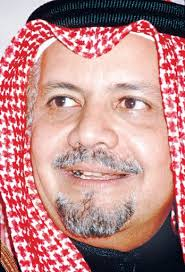“Chevron will continue to comply with applicable laws and regulations in relation to the activities that it is authorized to undertake in Venezuela,” a spokesperson for the company said. “We remain committed to the integrity of our joint venture assets, the safety and wellbeing of our employees and their families, and the company’s social and humanitarian programs during these challenging times.”
Total didn’t return requests for comment, as didn’t Maduro’s Information Ministry, the Oil Ministry and PDVSA. Eni said none of its executives visited Caracas.
Maduro’s government says his new energy law alone will allow oil companies to get back in business as they assume control of Venezuelan assets. That’s because the U.S. only bans doing business with PDVSA, the regime and those who help it. Oil ventures run by independent oil companies, in theory, wouldn’t be barred from developing crude reserves in the country.

A cyclist rides past a mural of oil pump jacks on the Boulevard de Sabana Grande in Caracas.Photographer: Carlos Becerra/Bloomberg
Major oil companies would probably wait for sanctions to be lifted regardless, but others could jump in as soon as they can claim they’re operating independently from PDVSA and Maduro’s regime, and therefore not subject to sanctions.
There are people close to the government “eager to get some oil fields; I would expect there to be some privatizations,” Monaldi said. “They will try to invest in the wells that are the easiest to connect.”
Wilmer Ruperti, a Venezuelan-born
shipping magnate, is among less-known entrepreneurs who have sought to do business with PDVSA in the past despite sanctions. Ruperti didn’t reply to requests for comment on potential investments under the proposed new rules.
Restoring Venezuela’s oil industry back to its former glory would likely take tens of billions of dollars, and that might never happen, but any business activity would help the country.
Once a prosperous OPEC-founding member that produced more than 3 million barrels a day of crude, the nation is now pumping less than half a million.
Oil Minister Tareck El Aissami recently vowed to boost production to 1.5 million this year, and that would be difficult to achieve without help. Monaldi estimates more than $100 billion and a decade of work would be required to get output past 2 million barrels a day.
“This means you need a ton of private investment,” he said.
An increase in oil output would not only buoy the economy but also raise capital to ultimately pay off creditors holding roughly $60 billion of defaulted obligations.
So, executives from the oil industry and capital markets have also been pleading their case to officials in Washington, people familiar with those discussions said. Their message: If others are going to play ball, let’s get in on the action, too.
“The big question is if the oil companies have enough political clout for an easing in sanctions,” said Raul Gallegos, a Bogota-based director at Control Risks, an international consulting firm. “They are interested in the flexibility that Maduro is offering.”
The U.S. Treasury’s Office of Foreign Assets Control, which enforces the sanctions, didn’t immediately reply to requests for comment.
With bigger issues to tackle, from the coronavirus to tension with Russia and trade with China, U.S. President Joe Biden’s administration hasn’t yet made a significant pivot from President Donald Trump’s strategy on Venezuela. The U.S. government officially recognizes opposition leader Juan Guaido as Venezuela’s interim president until there’s a free and fair election.
If the new U.S. government at least moves to let companies resume swaps of diesel for Venezuelan crude, that would help the country avert collapse. The fuel is needed for trucks to take imported food, medicines and other products from ports to cities, as well as to haul goods from farms and factories.
``The onus is on the U.S. to decide if sanctions make sense going forward,'' Gallegos said.
Without investments in the country’s crumbling energy infrastructure, though, that would be just a stopgap solution.
— With assistance by Peter Millard, Patricia Laya, Francois De Beaupuy, and Kevin Crowley
(Adds comment from analyst in penultimate paragraph.)
 Primarily as a result of higher oil prices, the 87 companies analyzed suffered Net losses from hedging derivatives were $11 billion in 3Q21, totaling almost $30 billion in the first three quarters of 2021.
Primarily as a result of higher oil prices, the 87 companies analyzed suffered Net losses from hedging derivatives were $11 billion in 3Q21, totaling almost $30 billion in the first three quarters of 2021.







 A cyclist rides past a mural of oil pump jacks on the Boulevard de Sabana Grande in Caracas.Photographer: Carlos Becerra/Bloomberg
A cyclist rides past a mural of oil pump jacks on the Boulevard de Sabana Grande in Caracas.Photographer: Carlos Becerra/Bloomberg






